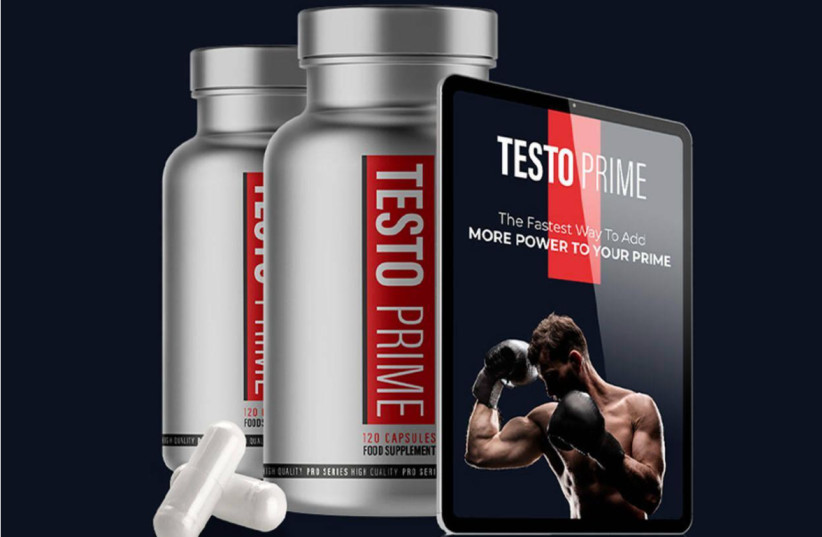Testosterone is primarily a male hormone that is responsible for all masculine features such as a deep voice, muscular physique, hair growth in numerous areas of the body, and general body augmentation.
Recently, many male bodybuilders have been drawn to artificial testosterone boosters in order to accelerate muscle development and strength. Numerous steroids were utilised to do this.
However, steroids have a slew of serious side effects. Testosterone Booster Supplements were created to provide all of the advantages of steroids without the negative side effects. Many people suffering from low testosterone ask how to boost testosterone or how to naturally increase testosterone?
Making good lifestyle adjustments and eating a nutritious diet may significantly increase testosterone levels naturally, improve your mood, and general health. Several natural methods for increasing low testosterone levels include the following:
12 Ways to Increase Testosterone Levels Naturally
Use of a Natural Testosterone Boosting Supplement
According to the variety of testosterone boosters (or T-boosters) on the shelves of health food stores, testosterone boosters (or T-boosters) are a large industry.. T-boosters are not regulated by the Food and Drug Administration (FDA), because they are dietary supplements and not medicines. Testosterone Booster supplements contain only natural ingredients that are completely safe.
Testoprime: The Most Effective All-Natural Testosterone Booster

Testoprime has emerged as the top-rated testosterone booster with favourable reviews. According to user comments and clinical findings, the following advantages may be reaped through frequent tablet consumption: This product makes the following claims:
- Increased energy levels on both a physical and mental basis
- Increased muscular mass in lean muscles
- Increased metabolic rate
- Elimination of superfluous fats
- Significantly increased testosterone production and levels
- Rapid pace of recovery
Reduce your weight
Over 50% of obese men have laboratory-confirmed hypogonadism, defined as testosterone levels less than 300 ng/dL. Confirming this, one study of obese men who had weight reduction surgery found that their testosterone levels increased from an average of 295 ng/dL pre-surgery to 423 ng/dL post-surgery within a year after the treatment.
If you need to reduce weight, see your healthcare professional to determine the best course of action. According to several studies, low-fat diets might actually suppress testosterone levels. Consult your physician about integrating healthy fats such as olive oil and avocados in your diet.
Vitamin D
Vitamin D has long been studied in relation to male fertility and testosterone synthesis - vitamin D receptors are found on sperm cells, and it may also contribute to the creation of steroid hormones.
Supplementation with vitamin D for a year resulted in a rise in testosterone levels in males with low vitamin D levels. The reason for this is unknown, given the research was done on middle-aged males who may have undergone age-related testosterone reduction.
Vitamin D supplementation is a highly safe and inexpensive strategy to prevent low testosterone levels. The majority of individuals do not receive enough vitamin D, particularly those who live north or south of 37° north or south of the Equator (which includes the United Kingdom), due to the relative lack of sunshine. Due to the fact that it is a fat-soluble vitamin, it should be taken with meals that include dietary fat.

Exercise is the key for high Testosterone Levels
Apart from its capacity to aid in weight loss, exercise has been demonstrated to increase testosterone levels. In one research, men who lifted free weights or used weight machines for eight weeks had a larger rise in "free testosterone" (testosterone that is not attached to proteins and can connect to testosterone receptors in the cells) than those who used weight machines.
And, although most people associate muscle building and testosterone stimulation with weight lifting and strength training, other forms of physical activity, such as walking and high-intensity interval training (HIIT), have also been shown to be helpful. For instance, a study evaluating men's daily step counts and testosterone levels found that those who walked more than 4,000 steps per day had a much reduced risk of having low total testosterone levels than those who walked less steps. Additionally, for every 1,000 extra steps taken by the guys, total testosterone levels rose by 7 ng/dL.
Get enough sleep
Sleep increases testosterone levels, which may explain why men who are chronically sleep deprived may have decreased testosterone levels. In one research, testosterone levels were measured in young, healthy males after they slept eight to ten hours for a period of nights and subsequently reduced sleep to five hours per night for eight nights. Overall, testosterone levels in males declined 10% to 15% following eight days of sleep deprivation.
Consult your physician if you suspect you have a sleep condition such as snoring or sleep apnea for confirmation and possibly treatment with CPAP. CPAP is a device worn on the face at night that may assist you in breathing and sleeping better. Sleeping well also helps you feel more energized throughout the day, which makes weight reduction simpler.
Effects of Creatine on Testosterone
Creatine is a tiny organic acid that acts as an energy intermediary, restoring ATP (the body's primary source of energy) levels in cells more quickly than glucose or fatty acids. Although creatine is most recognized for its ability to accelerate muscle development and boost strength during exercise, it has also been studied for its interactions with androgens (the primary sex hormones). It seems to generate a slight but consistent rise in testosterone concentrations of roughly 20%-25% in young males between the ages of 18 and 35.
This rise is assumed to be partly responsible for creatine's benefits on muscle development and power output, however further study is required to identify the exact process by which testosterone levels are increased. It's worth mentioning that creatine is completely safe to consume, despite widespread beliefs that it might cause kidney damage.
Maintain a healthy lifestyle
Substance misuse is a significant contributing factor to low testosterone levels. Low testosterone levels have been linked to chronic alcohol addiction (but not too low-to-moderate alcohol use) and opiate usage. Other drugs, including cigarette and marijuana use, may also have a detrimental effect on testicular tissue and sperm health — but not specifically on testosterone production.
Consume more quinoa
Quinoa has a terrible reputation, although it is really a seed that is cooked like a grain. It is strong in androgen-mimicking chemicals and amino acids, as well as zinc, magnesium, and arginine. Additionally, it pairs nicely with salad.
Magnesium and Testosterone Levels
Magnesium, like zinc, is a dietary mineral, and a lack has been associated with decreased testosterone levels.
Magnesium supplements will restore testosterone levels to normal if you are insufficient, but will not enhance testosterone levels over normal if you are not deficient. Magnesium, like zinc, is lost via perspiration, which is why it is often advised for athletes.
Eat soy in moderation
It is claimed to reduce testosterone levels – but you should be alright as long as you do not consume excessive amounts. Because the processed kind includes isoflavones that mimic oestrogen and may suppress T levels, go for the less processed variety found in sauce or edamame and reserve tempeh for rare occasions.
Consume more seeds
Zinc and magnesium are required for testosterone synthesis, and nuts and seeds will assist you in obtaining sufficient amounts. Brazil nuts and cashews are also excellent choices, but pumpkin seeds have the most antioxidants per gram - sprinkle them over oatmeal.
Zinc - How it helps increasing Testosterone Naturally
Zinc is a dietary mineral that is often touted for its testosterone-boosting properties. Indeed, it benefits only those who have a zinc shortage, which might be you — athletes and others who engage in strenuous physical activity are particularly susceptible to this, since zinc is lost via perspiration. Zinc deficiency is connected with reduced testosterone levels in older men; thus, restoring zinc levels to normal levels will result in an increase in testosterone levels. However, raising zinc levels over typical body levels does not result in a rise in testosterone, and excessive zinc may irritate the intestines and cause liver and kidney damage. Excessive zinc might also result in a copper shortage over time.
Take zinc with meals if you're taking it, since some individuals suffer nausea when they take it on an empty stomach. Avoid combining zinc with minerals such as calcium, magnesium, and iron at quantities of 800mg or more, since the minerals will compete for absorption, reducing the supplements' overall efficacy.
Final Words on Increasing the Testosterone Levels
Testosterone is a sex hormone that both men and females produce. While it is more prevalent in men, ladies tend to have lower levels. It is synthesised mostly in the testicles, female ovaries, and sometimes in the adrenal glands. The biggest challenge when suffering from low testosterone is to boost testosterone naturally.
While testosterone levels play a significant role in initiating male puberty and associated changes (such as voice changes, hair growth, muscular development, and a deep voice), optimal testosterone levels are also necessary for maintaining health throughout adulthood.
Hopefully, you will find this list of natural ways to increase testosterone helpful!
Advertising Agency:
Reckonsoft.org
contact@reckonsoft.org
This article was written in cooperation with Reckonsoft
